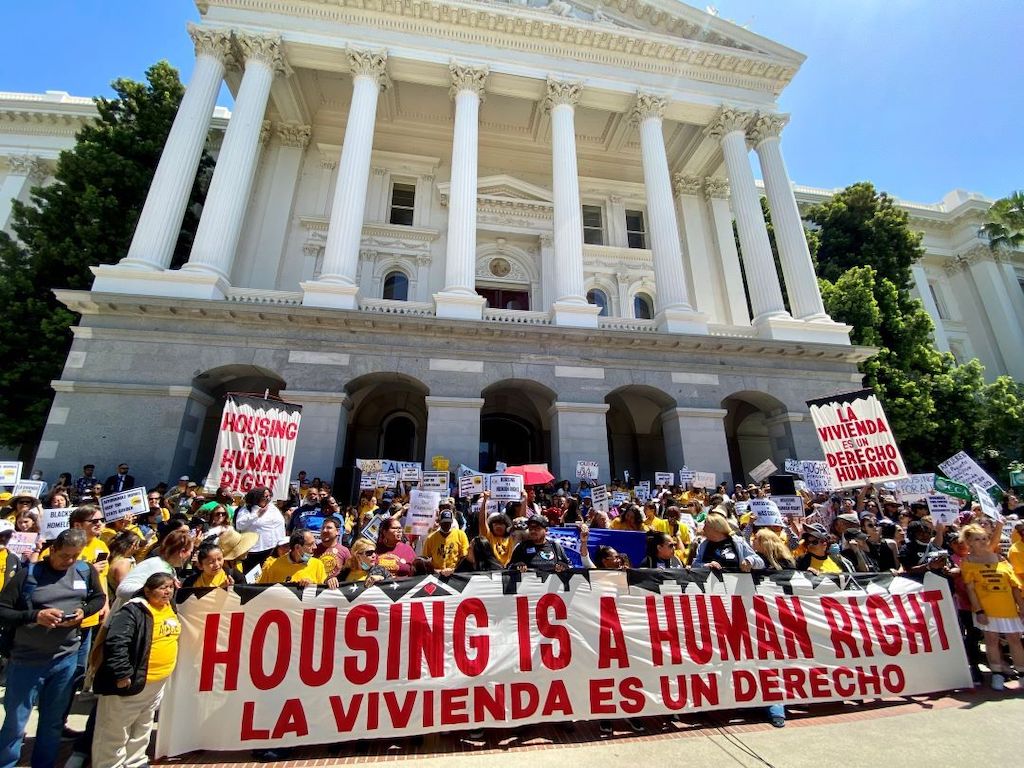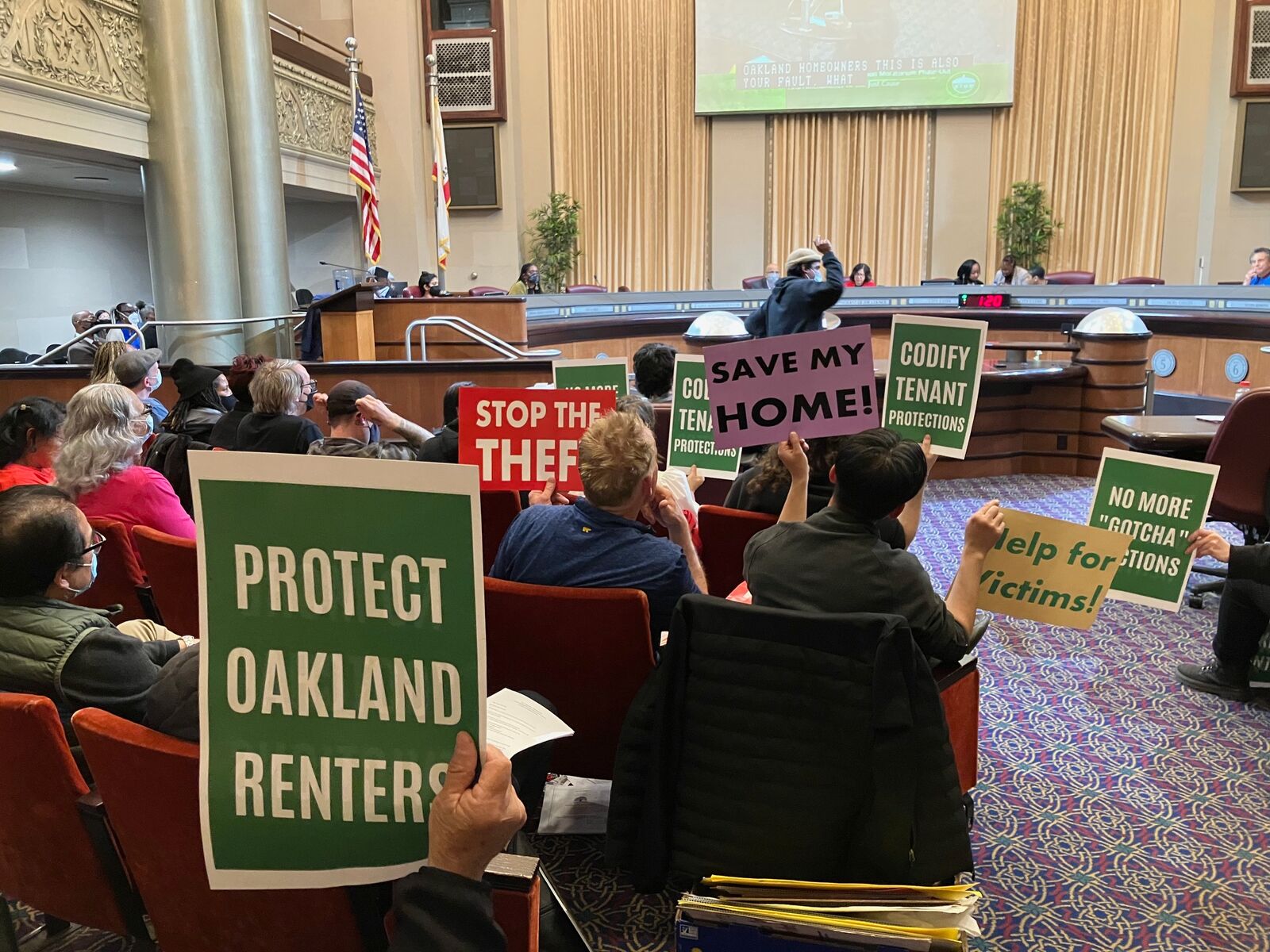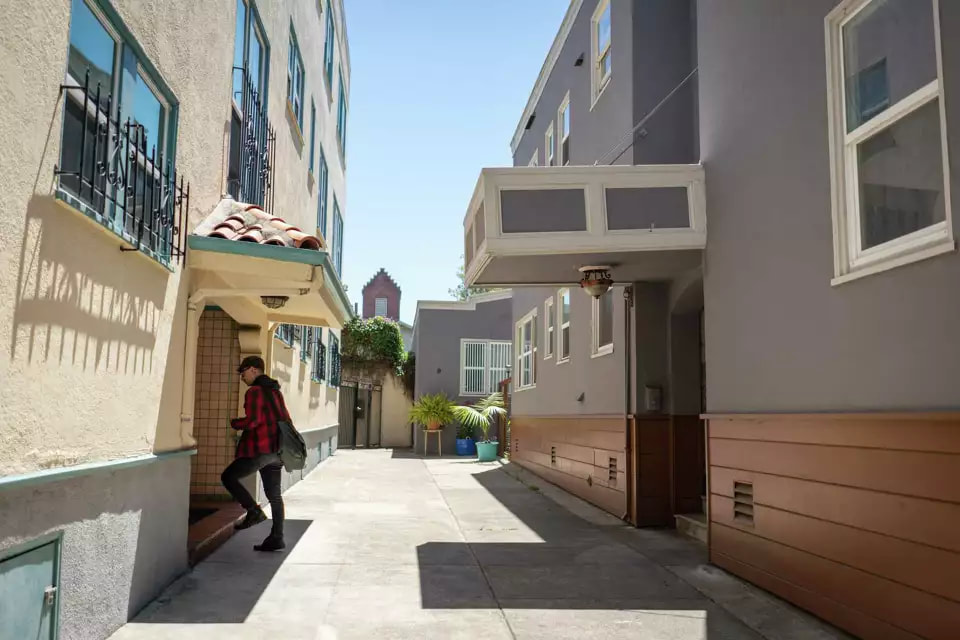|
On Tuesday, December 5, City Council unanimously approved some amendments to Oakland's Rent Regulations. These amendments will:
After a hugely successful phone (and email) zap by OTU members and our allies, the Alameda Court agreed to flatten the eviction curve by slowing down the number of eviction cases they will hear every week from 188 to 38.
The Oakland Tenants Union condemns Israel's ongoing genocidal war on Gaza, which is killing its civilians and destroying their housing, their hospitals, their schools, and their businesses. OTU calls for an immediate ceasefire and restoration of all services, and demands the U.S. immediately end all military aid to Israel.
Earlier this month, California passed a bill requiring the state to produce a study and recommendations on expanding the state’s social housing sector. Organizers hope it will be the first step in providing de-commodified shelter on a large scale.
OTU members and allies showed up to the Oakland City Council to demand a phased rollout of the eviction moratorium. The final legislation includes a set of new tenant protections, designed to mitigate the tsunami of eviction filings that will certainly occur now that the moratorium is no longer in place.
Under the new policy, tenants who can prove they experienced a COVID-related hardship can never be evicted for unpaid rent that became due while the moratorium was in place. Landlords are also prohibited from evicting anyone who owes less than one month of what the federal government considers fair rent. Despite facing the worst deficit in Oakland’s history of $360 million, we made significant strides in prioritizing funding for programs and services that address the needs of our most impacted communities.
If a landlord wants to evict an Oakland tenant for violating their lease, they’ll now have to prove that the renter’s behavior caused “substantial actual injury” to the property owner or other tenants. The Oakland City Council on Tuesday approved this update to its Just Cause for Eviction Ordinance, which spells out permissible reasons for removing a tenant from a property. Supporters of the new “substantial injury” rule say it will prevent landlords from using technicalities in the fine print of a lease agreement as an excuse to kick someone out.
On November 8, 2022, after sustained advocacy by OTU members and allies, Oakland voters passed Measure V, which improves the Just Cause for Eviction Ordinance by:
After years of advocacy from OTU, Oakland City Council approved a rent registry, which will include data on who owns which properties in Oakland, whether they’re covered by rent control, how much landlords can charge tenants, and the eviction history for any unit. The registry will include all housing covered by Oakland’s rent control and eviction laws, which is most rental buildings constructed before 1995.
Landlords will be required to submit information about each of their rental units annually to the city, or be prohibited from evicting tenants or raising rents beyond the standard amount. Oakland officials on Tuesday evening capped rent increases at 3% for rent-controlled apartments, effectively preventing landlords from raising rents by 6.7% starting in July, which had been on track to be one of the highest one-year rent increases in the city’s history.
|



